Developing Europeans’ digital skills: learning from the best
Fewer than 60% of Europeans have basic digital skills and fewer than 30% have above-basic skills, per the EU’s DESI. Future actions should anticipate needs, deliver strong user experience, prioritise adult training, and operate at scale.

On average, fewer than 60% of Europeans have at least basic digital skills, and fewer than 30% have above-basic skills, according to the EU’s Digital Economy and Society Index (DESI).
The picture is worse for those aged 55–74: on average, fewer than 40% have basic skills, and fewer than 15% have above-basic skills.
With new technologies emerging and online and phone fraud rising, low levels of digital skills are a serious problem: they hinder the EU’s digital transformation and the adoption of new tools, keep bureaucracy tied to outdated paper-based processes, and leave citizens more vulnerable to scams.
We took a quick look at the European Commission’s Digital Economy and Society Index (DESI), which has measured countries’ progress in digital upskilling since 2022. Although the DESI Index receives both fair and unfounded criticism, it remains one of the few gauges of how EU Member States are actually performing.
Improving basic digital skills: Hungary, Czechia and Estonia leads
Although both the EU and Member States have introduced various measures to improve digital skills in the past, progress over the past five years has varied significantly across Member States.
Some countries’ progress in digital upskilling should be taken with a grain of salt: Finland, the Netherlands, Ireland, Denmark, and Sweden have been in the top five since 2022, so they did not necessarily had sufficient room to grow.
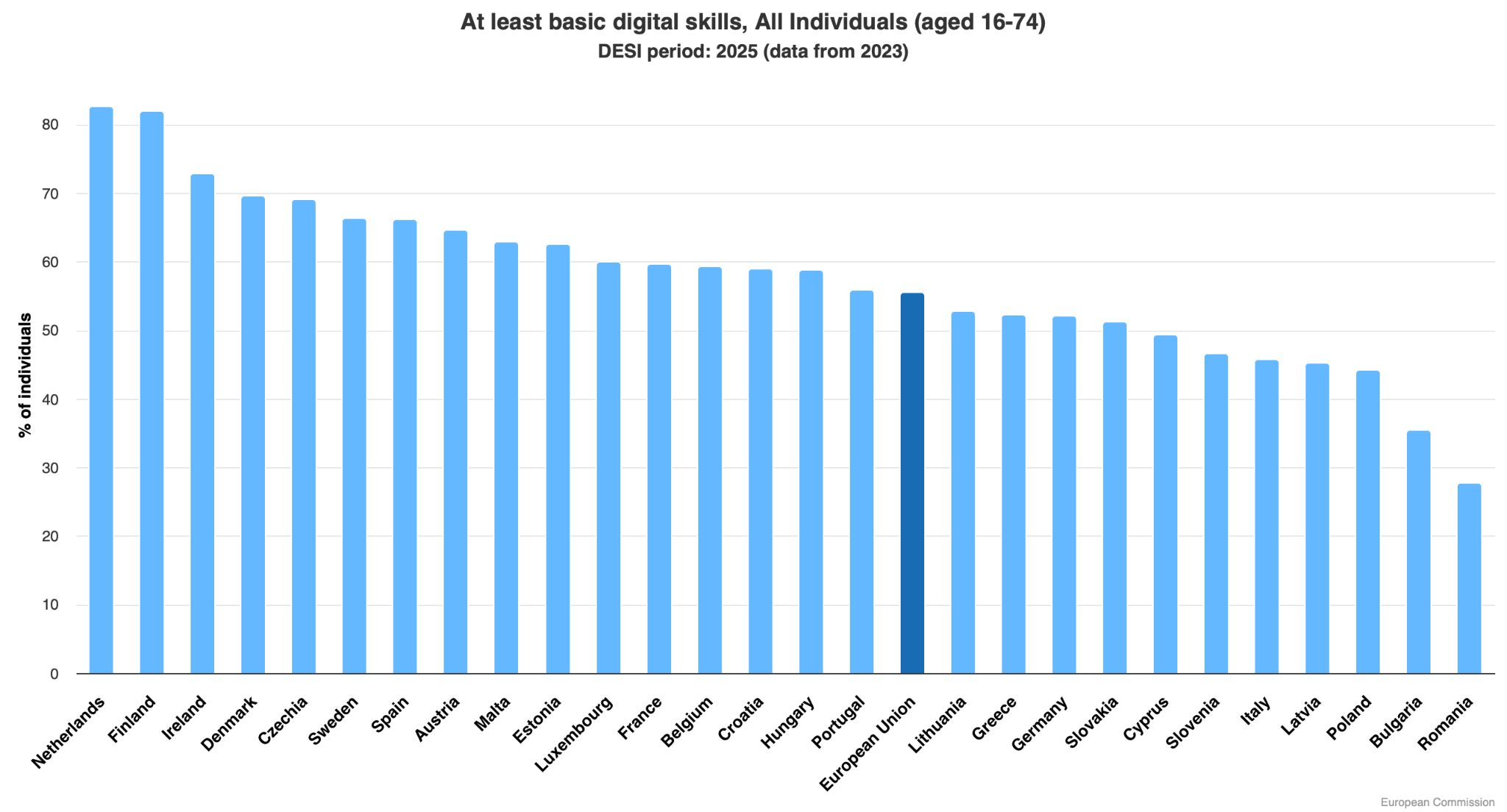
When looking back at countries' progress, Hungary leads in improving basic digital skills among citizens aged 18–74, with a 9.8% increase. Czechia follows with 9.42%, making it into the top five EU countries by basic digital skills, followed by Estonia (6.24%) and Belgium (5.16%).
All other countries improved by less than 5%: Bulgaria 4.34%, Lithuania 4.07%, the Netherlands 3.76%, Germany 3.30%, and Finland 2.81%.
The total EU average rose by just 1.64%.
Some countries’ progress even declined: Latvia −5.46%, Croatia −4.42%, and Slovakia −3.87%.
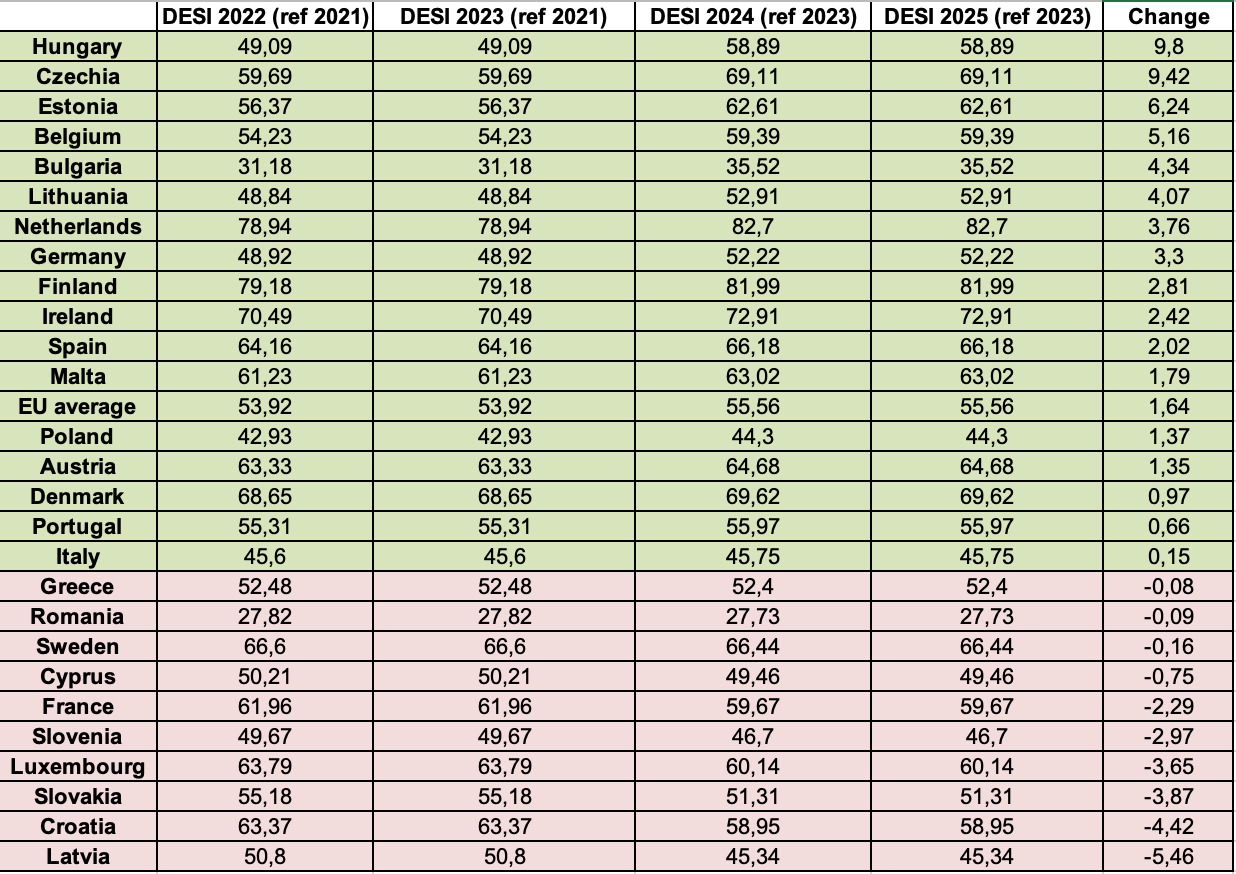
Improving above basic digital skills: Czechia, Hungary, Estonia and Finland lead
The picture is much more modest for above-basic digital skills, which are especially important given the EU’s broader AI goals set out in the AI Continent Action Plan.
Only the Netherlands and Finland score above 50% in the 2025 DESI Index; the EU average is below 30%, and some countries, such as Bulgaria and Romania, score below 10%.
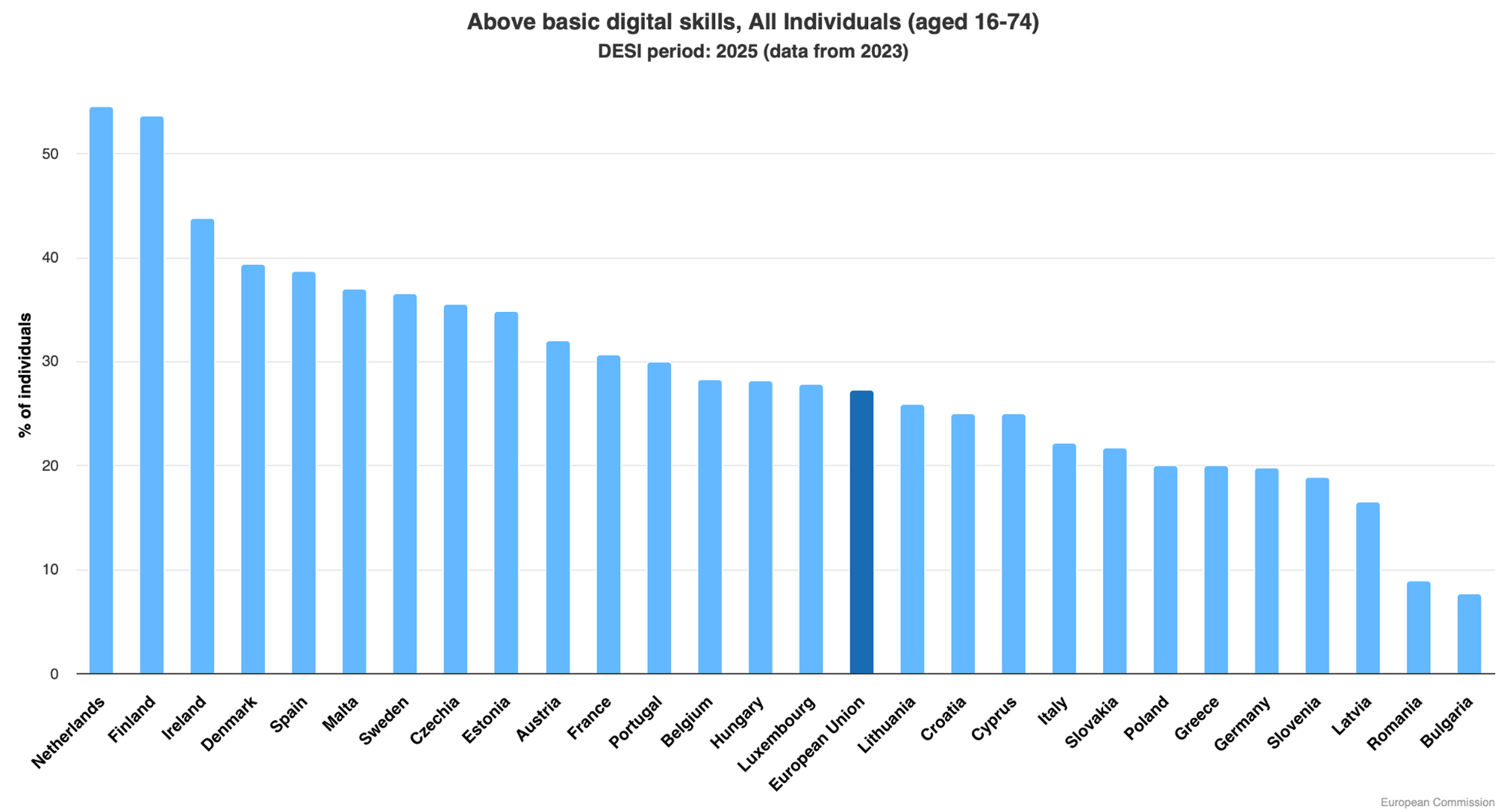
Progress-wise, Czechia stands out again with +11.42% in recent years. Estonia follows with +7.16%, Hungary +6.59%, and Finland +5.50%.
All other countries improved by under 5%: Ireland +4.13%, Cyprus +4.01%, Lithuania +2.89%. The EU average increase is just +0.86%.
Some countries progressed backwards: Latvia −7.24%, Croatia −6.18%, Luxembourg −3.95%.
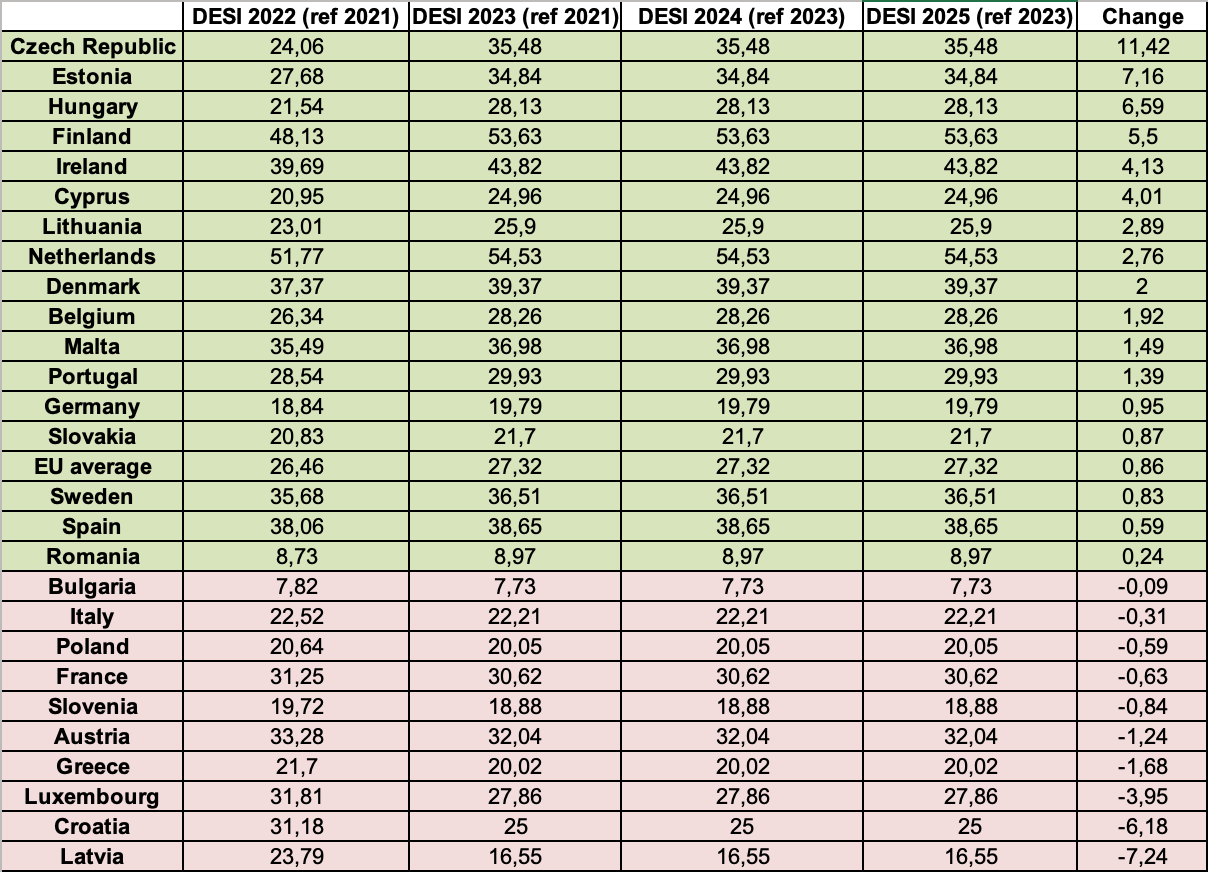
European seniors remain digitally vulnerable
European seniors remain digitally vulnerable - on average, less than 40% possess basic digital skills. Moreover, a big disparity between the leaders and followers can be seen: while almost 70% of citizens in the Netherlands, almost 60% in Finland possess at least basic digital skills, less than 20% of Polish, Cypriot, Bulgarian and Romanian citizens can boast the same.
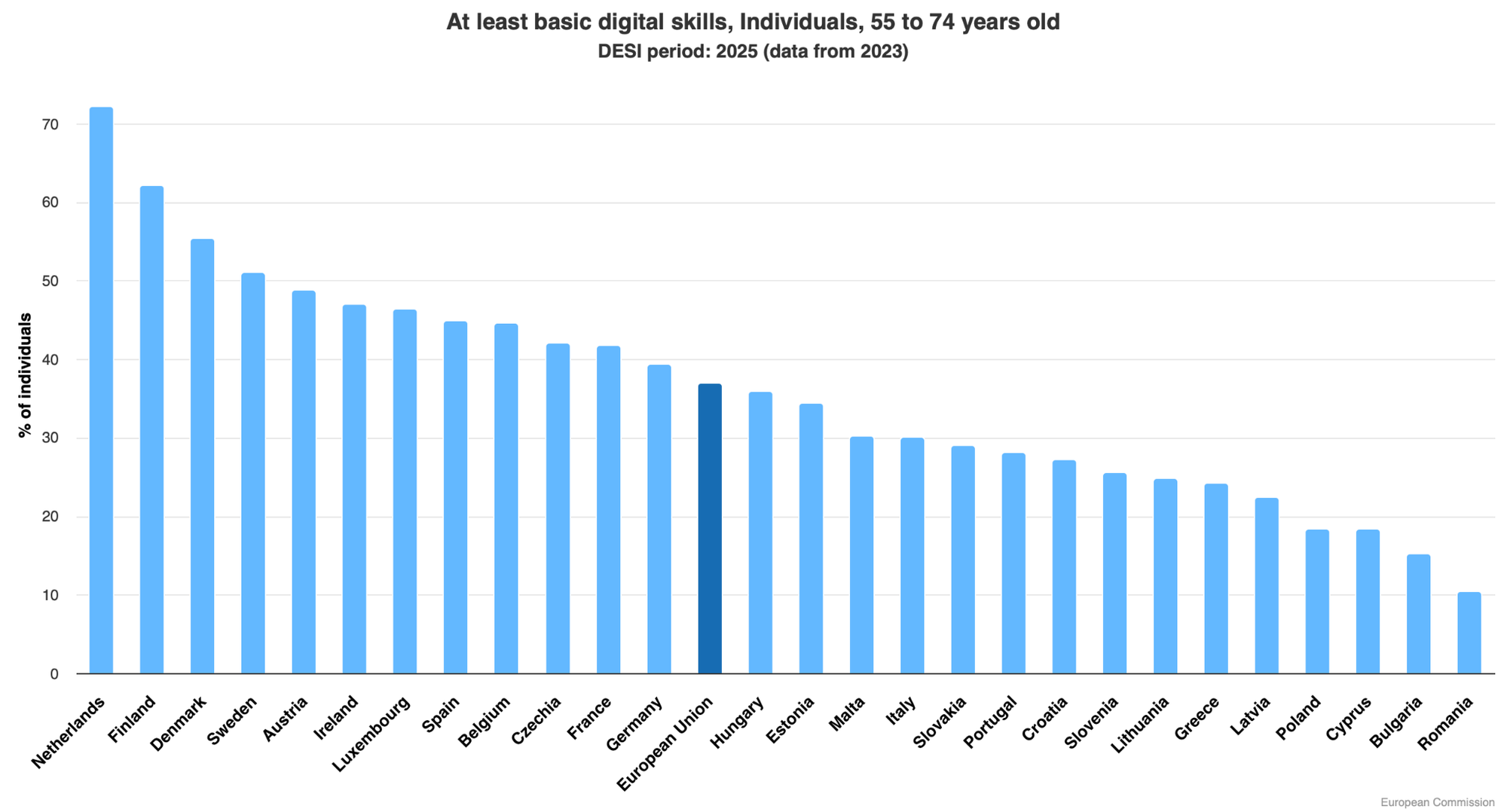
Belgium was the leader when it comes to improving basic skills of people aged 55-74 with +10,5%, Czechia - with 9,66%, Hungary - 9,3%, Estonia - 6,76%.
Interestingly, Ireland’s basic skill level among people aged 55-74 decreased by -8,09%, Slovenia’s - by -5,85%.
The EU average increased by mere 2,43%.
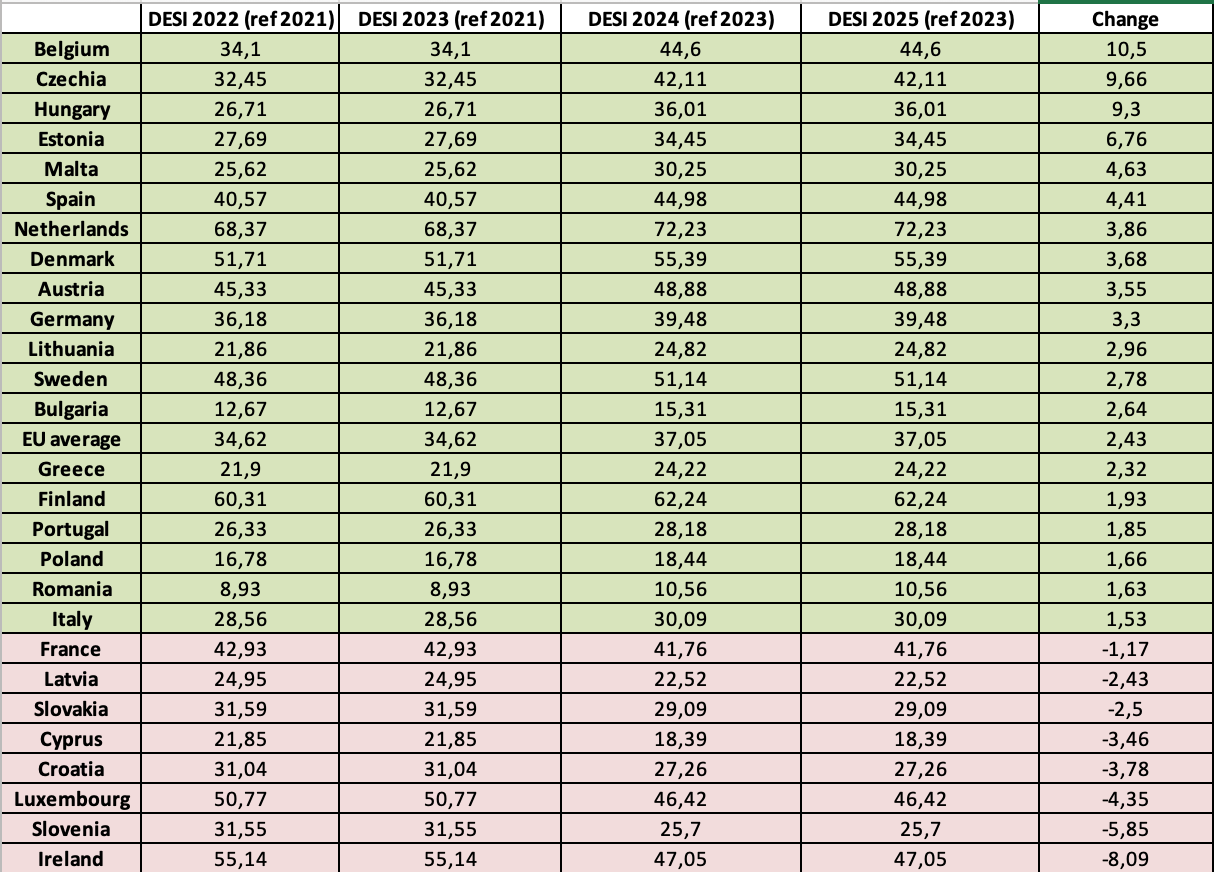
The picture is even more gloomy when it comes to above digital skills: traditional leaders the Netherlands have less than 40% of citizens with said skills, less than 30% in Finland, while the total EU average is below 15%.
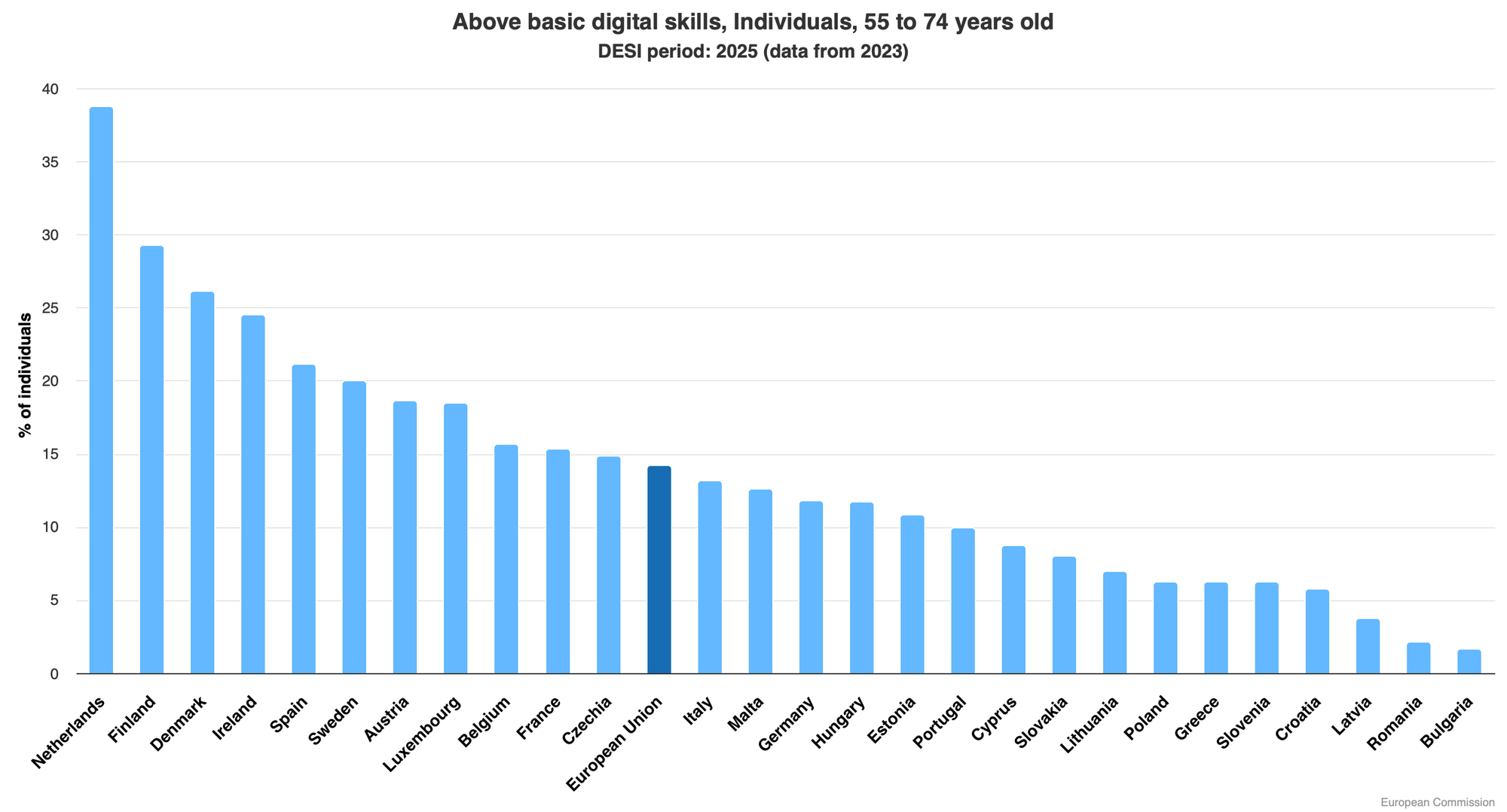
When it comes to progress in improving above average digital skills among older Europeans, Ireland stands out with 7,08%, Lithuania with 4,06%, the Netherlands with 3,77%, and Poland with 3,65%.
Bulgarian results in 2025 are worse than they were in 2022 with -3,48%, Croatian -2,54%, Italy -2,1%.
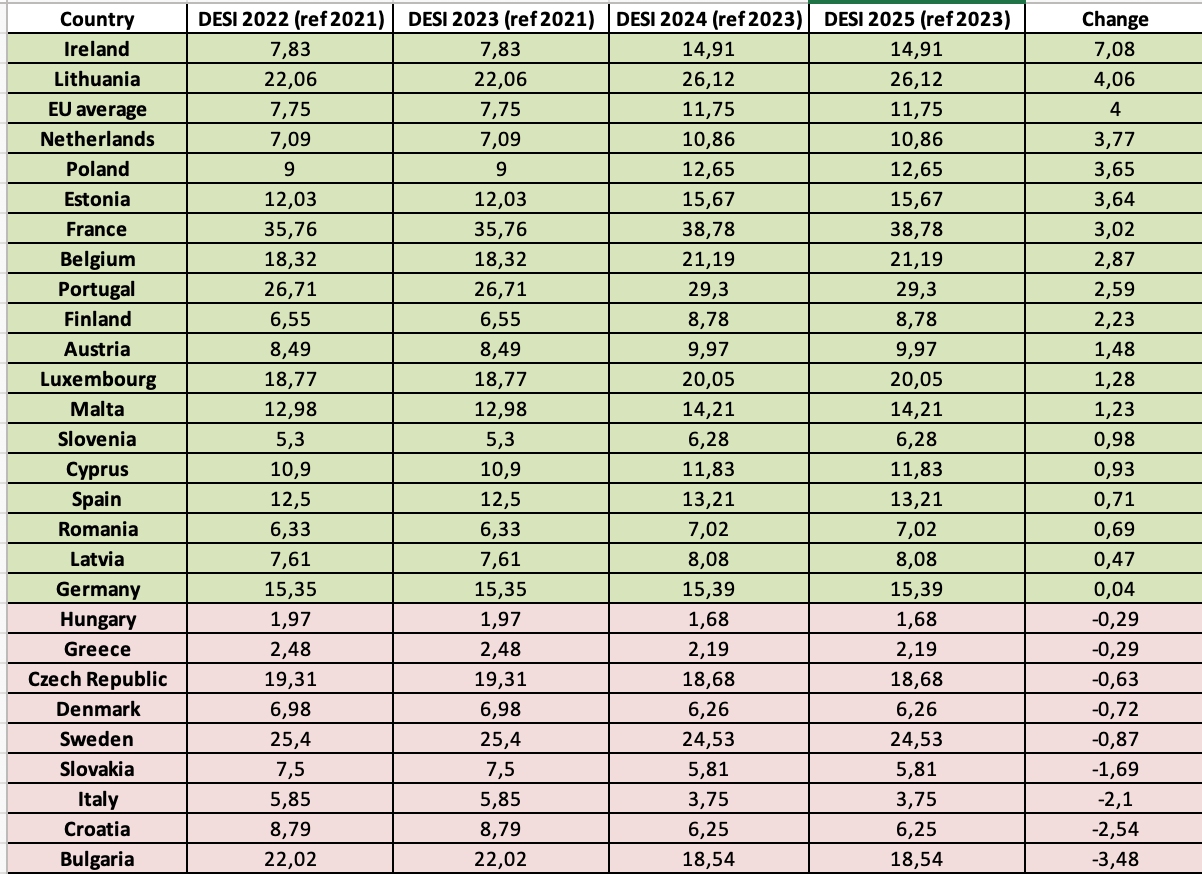
What’s next: the EU’s plans
The EU has acknowledged the lack of progress in improving Europeans’ digital skills, indicating that, without a change in approach, the EU will reach only 60% of citizens with basic digital skills by 2030, well short of the 80% target.
The third report for the Digital Decade outlines a few measures that the EU is planning to implement: first, the Skills package adopted in March 2025 has a strong focus on digital skills, and includes Union of Skills and Action Plan on Basic Skills. Additionally, a 2030 Roadmap on the future of digital education and skills is underway.
The plans are also supported by money: the report says that Member States reported investments of over 24 billion euros in basic digital skills in their national roadmaps.
The plan urges the EU Member States on improving the provision of digital skills and competences in education and training, including targeted policies for groups most in need, increase the availability of advanced digital upskilling via lifelong learning, lastly - support the implementation of Digital Skills academies.
Learning from high-achievers: forecasting, scale and user experience
All plans are welcome, but it is crucial to learn from those that have delivered the most so far, namely the Netherlands, Finland, and Estonia.
Many countries run similar initiatives, yet these three stand out for anticipating future needs and meeting them early, offering strong user experiences on digital learning platforms, focus on adult training, and operating at scale. Too often, digital upskilling efforts in EU Member States are simply too small to generate a meaningful compounding effect.
Estonia, for example, already has an AI-skills program for schools - AI Leap 2025 - which collaborates with leading AI providers to train 20,000 students in higher grades, along with 3,000 teachers. To put it in context, Estonia has roughly 158,000 students in general education, so the AI skills program is reaching at least 12% of pupils per year, and the numbers will compound over the years. In 2026, Estonia is planning to expand the program further and involve additional 38,000 students and 2,000 teachers (or 25% of total students).
The Netherlands, a leading country in all digital skills indicators, seems to have been one step ahead: previously, it had a so-called STAP budget (ended in 2023), which provided individual learning accounts that subsidized adult upskilling.
With overall numbers of digital skills being way above EU average, the Dutch are refocusing on AI skills development (via AiNED - National Growth Fund), retraining of talent to fit ICT needs (Human Capital Agenda), and grants for small and medium enterprises to develop digital skills.
Finland, another country showing good results and progress, has built a joint digital learning platform Opin[.]fi with 37 higher education institutions to support lifelong learning (including digital skills).
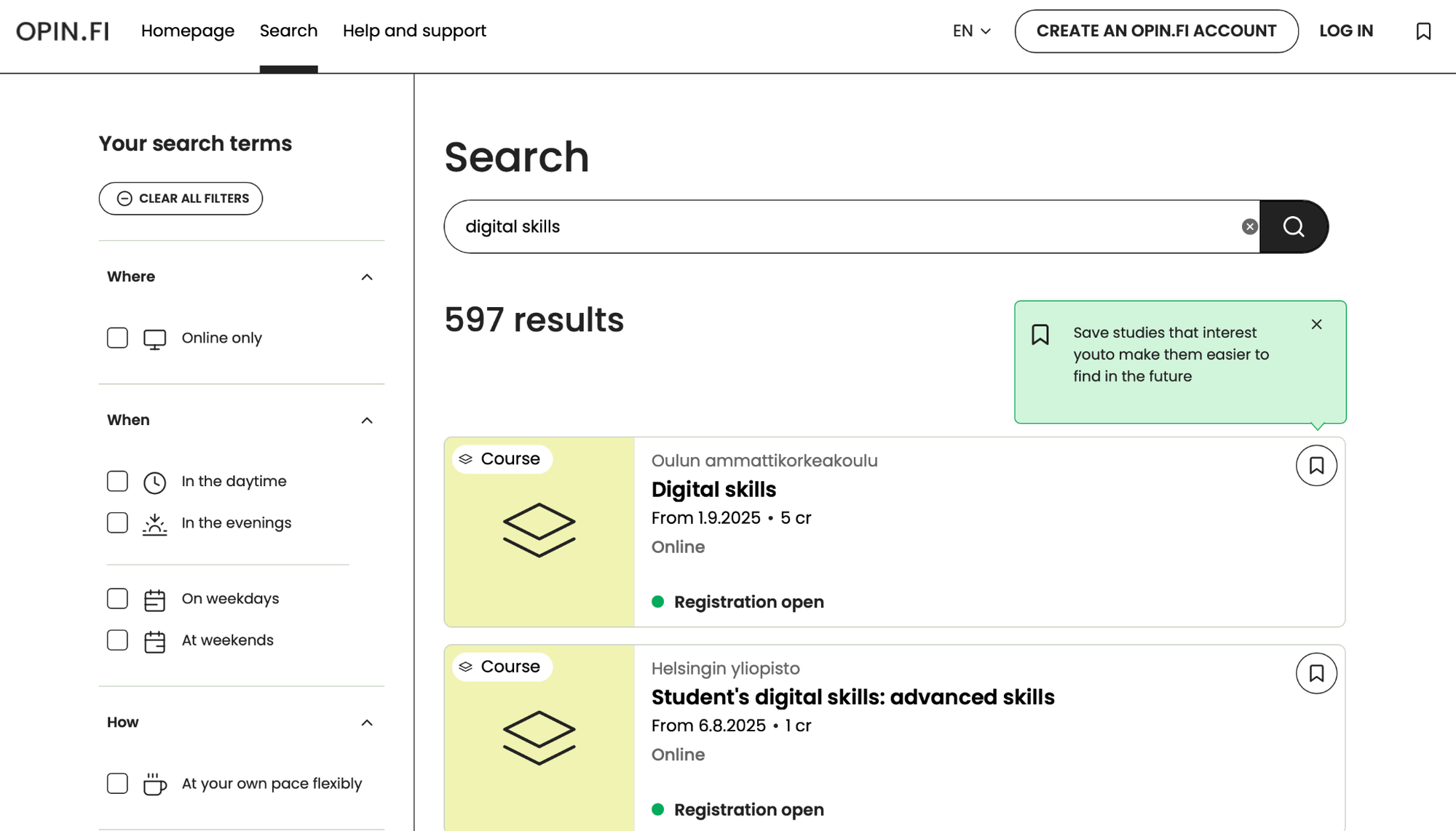
Among other initiatives, Finnish Data and Population services agency provides nation-wide training materials for citizens, municipalities on digital support.

